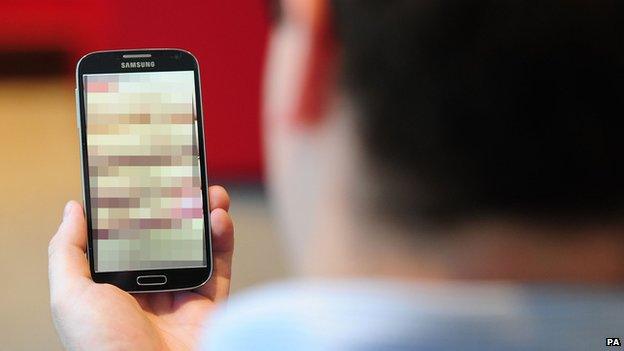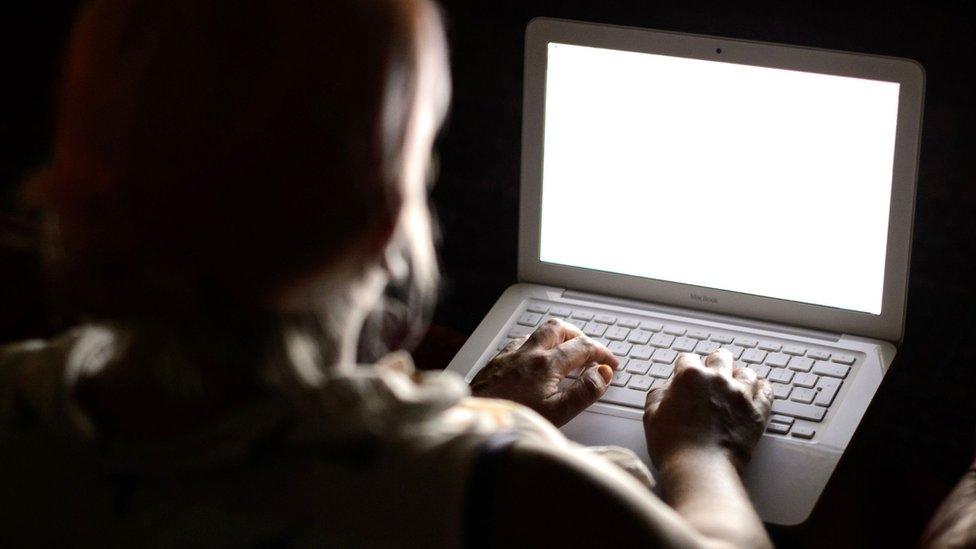'Revenge porn' man Jason Asagba sentenced
- Published

Legislation came into force in April covering images sent on social networks and those sent by text message
A man has been sentenced after becoming one of the first people to be convicted under new "revenge porn" legislation.
Jason Asagba pleaded guilty in July to disclosing sexual photographs and films with intent to cause distress.
Asagba, 21, of Romford, east London, shared intimate pictures of a 20-year-old Reading woman on Facebook, in May.
He was given a six-month jail sentence, suspended for 18 months, as well as 100 hours unpaid work at a hearing at Reading Magistrates' Court.
Asagba, of Chadwell Heath Lane, was also handed a restraining order and told to pay £345 in costs.
He first threatened to post the pictures three days after the new laws came into force on 13 April.
He subsequently published the images online, causing the victim "extreme distress", police said.
The new law was introduced after campaigners lobbied MPs to make it a criminal offence.
Previously, convictions for this type of offence were sought under existing copyright or harassment laws.

What is the "revenge porn" law?
The offence of sharing sexual photos or videos of another person without their consent came into effect in England and Wales on 13 April
The new law is covered under an amendment in the Criminal Justice and Courts Act 2015
It can include images posted on social networks, including Facebook and Twitter, and those sent by text without permission
Convicted offenders could face up to two years in prison
Scotland and Northern Ireland are considering similar laws

Det Con Steven Rose said: "This was very upsetting and distressing for the victim.
"However with the conviction and sentencing of Asagba I hope she can put this episode behind her."
Alison Saunders, director of public prosecutions, called revenge pornography a "violation of trust between two people and its purpose is to publicly humiliate".
"The new offence has only been in force since April... anecdotally we are seeing more of these cases being brought to us by the police and it is clear that the new legislation is having an impact," she said.
- Published1 September 2015

- Published19 August 2015

- Published30 July 2015

- Published20 July 2015

- Published22 July 2015

- Published12 February 2015
